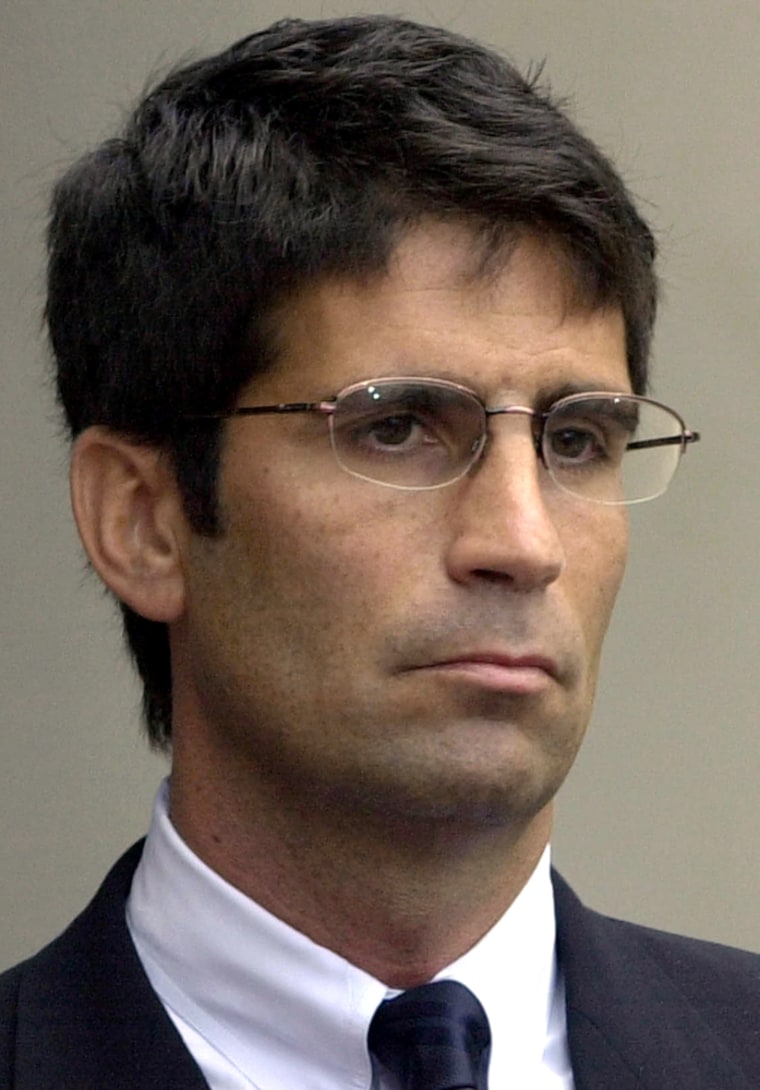More than two years after becoming the first former Enron Corp. executive to plead guilty to crimes, Michael Kopper made his debut Monday as a prosecution witness in the conspiracy and fraud trial involving former executives of the energy company and the brokerage Merrill Lynch & Co.
Kopper, 39, was at the epicenter of financial schemes masterminded by his boss, former Enron finance chief Andrew Fastow, that funneled millions of dollars into their pockets and eventually fueled the energy company’s swift crash into bankruptcy in December 2001.
In August 2002, Kopper, a London School of Economics graduate, pleaded guilty to two counts of conspiracy for his role in several Fastow-run partnerships that helped Enron hide debt and inflate profits. Prosecutors say one of those partnerships, LJM2, played a significant part of an alleged sham sale of equity in three electricity-producing barges to Merrill Lynch at the end of 1999 — the deal at the heart of the trial that began in Houston last week.
Kopper testified Monday that when LJM2 bought the interest in the barges from Merrill Lynch in June 2000, Enron had promised to take the brokerage out of the deal.
“There was a predetermined price at which Merrill Lynch would be taken out of the deal,” Kopper said.
The six barge case defendants are accused of conspiring to push through the sale because Enron needed to appear to meet fourth-quarter earnings targets in 1999 and Merrill Lynch hoped to garner more investment banking business from the then-lucrative client.
The government contends the barge deal was a loan rather than a sale and Merrill Lynch’s investment was never at risk because the transaction came with an unwritten promise that Enron would find another buyer for the equity or buy it back itself by the end of June 2000. The defendants contend Enron was never obligated to repurchase that interest and higher-ups at both companies signed off on the deal.
Kopper also testified that Fastow called him in December 1999, asking if it was a good time for the partnership to buy interest in the barges. Kopper said he believed it was too risky, but said Fastow said he was interested in the partnership doing the deal then because “he would look like a hero to (former Enron CEO) Jeff Skilling.”
The deal with Merrill eventually was made six months later.
Kopper’s plea and cooperation paved the way to Fastow, who became the government’s most high-profile cooperating witness in the Enron investigation when he pleaded guilty to two counts of conspiracy in January.
The defendants in the barge case, who have pleaded innocent, are: Daniel Bayly, former chairman of investment banking for Merrill Lynch; Robert S. Furst, former Enron relationship manager for Merrill Lynch; James A. Brown, former head of Merrill Lynch’s asset lease and finance group; William Fuhs, former Merrill Lynch vice president who answered to Brown; Dan Boyle, a former Enron finance executive on Fastow’s staff; and Sheila Kahanek, a former in-house Enron accountant.
